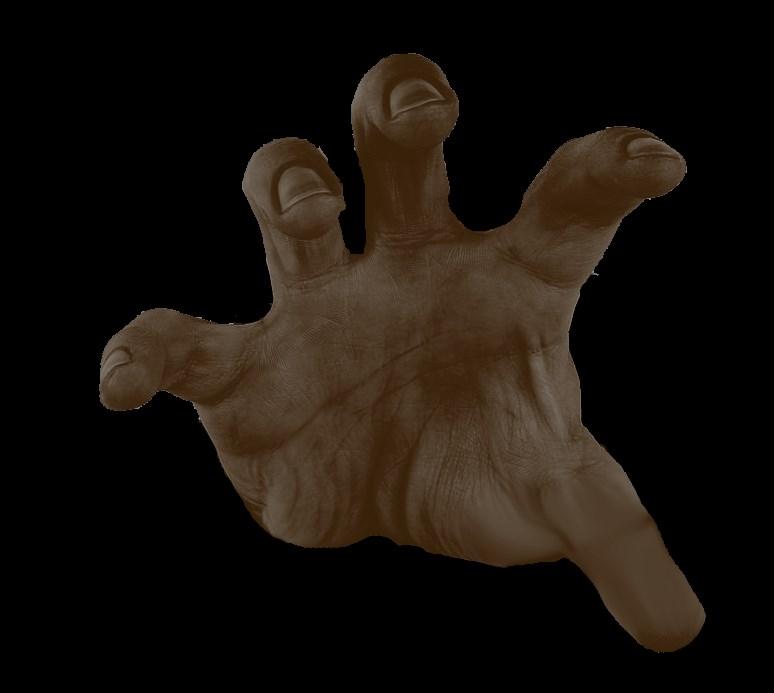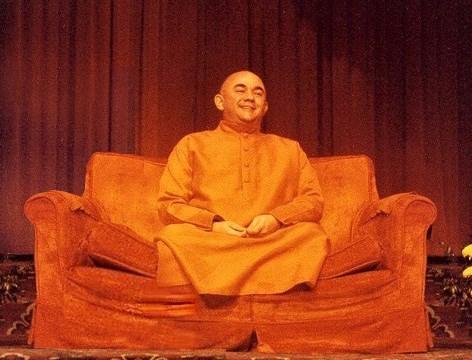









All-encompassing fullness —› craving, desire, grasping
All reaching/grasping — whether from the body, mind, or emotions — is caused by, and actually perpetuates, the singular misunderstanding of incompleteness.
You can’t solve the problem from the place it was created. —Einstein





The more we feel unfulfilled and incomplete, the more we feel the desire to fill the inner void with external objects and experiences such as wealth, food, sex, family, recognition, fame, etc. This grasping desire is clearly a contracted form of the Power of Will, which has the singular intent to express the innate joy of fullness.


The unimpeded Power of Knowing, an “all-encompassing fullness” (pūrṇatva), is the state in which the Power of Will naturally overflows, and one accesses the ability to want what is and to stop grasping for what is not.
Think of the times in your life when you have felt spontaneous joy, a sense of freedom, lightness, and that “all is right with the world.”
This is ānanda. What do you think was the cause of these experiences of ānanda? Did all these experiences have any objective feature in common?
You may notice that you can’t identify any external element that was the same in all the experiences. The only thing they likely had in common was that you were fully present and in harmony with yourself in each case.
The sole cause of true ānanda is this fullness of awareness. When the Light of Awareness manifests, bliss automatically accompanies it.


When the fullness is not manifest, it is always because you are internally divided and are identifying with a part of yourself instead of with the whole. The path to joy is that of seeing the truth of the whole of your being.
The opposite of the latter is the Impurity of Individuality, in which a sense of lack or incompleteness in oneself gives rise to craving/ grasping/desire (rāga).


Each experience we have is a kind of energy pattern that passes through our subtle body, so it stands to reason that only those experiences that are resisted in some way leave an impression. There are of two basic types of these impressions:
Experiences that we turn away from because they are uncomfortable or painful leave saṃskāras of aversion.
Those we resist by clinging to them leave saṃskāras of attachment.
If an experience is very pleasurable, we instinctively cling to it, thinking, “I don’t want this to end.”
Because of this clinging, the energy pattern of the experience cannot freely pass through your being, so it leaves an impression.
However, if the experience is quite pleasurable but not as wonderful as you want it to be, you might think, “If only it were more like this or less like that,” and in this way you don’t fully show up for what is, and therefore the unresolved experience leaves an impression.



Impressions show up as mental or emotional charges such as anxiety, doubt, or inhibition, which can characterize almost any type of impression.
Impressions of painful experiences that are charged with the fear of possibly having similar experiences in the future, while those of pleasurable experiences can be laced with anxiety about the transient nature of all feelings of happiness.
The first causes aversion when activated, and the second, grasping.
Saṃskāras are metaphorically called ‘seeds’ because, like real seeds, they can lay dormant for a short or long time until the conditions are right, and then they sprout. That is, when along comes a situation that even superficially resembles that in which the saṃskāra was implanted, it is activated and surfaces in the form of mental aversion or attachment, or emotional reactivity.





Saṃskāras when triggered, create grasping attachment in your body-mind.
If you always act on your aversion and grasping, the samskāric patterns will deepen in a vicious cycle, creating fear-based behavior patterns in the first instance ,and addictive behavior patterns in the second. These saṃskāras are concealed within the subtle body and can even block the flow of prāṇa, life-force energy.



Saṃskāras are the “seeds of samsara” that will sprout again
Saṃsāra means both ‘worldly experience’ and ‘the cycle of suffering’.
Inevitably, all your saṃskāras will be triggered by your various life experiences.
That is good news!
That is your golden opportunity: when a saṃskāra is triggered, it can be healed, resolved, dissolved, and/or released.


When we feel unfulfilled and incomplete, on the other hand, desire grasps for external things (or people), and seeks to pull them inward in a vain attempt to fill the inner emptiness.
When we feel full and complete, the energy of Will flows from the inside outward, due to a natural impulse to self-express and share that fullness in various ways with other beings.

Where fullness translates to a desire to share (the fullness overflows), incompleteness translates to a desire to grasp and hold and pull close (the vacuum sucks).
The latter perpetuates emptiness in a vicious cycle since the void cannot be filled by anything impermanent or external or even experiential, yet pleasure gives a partial and temporary respite from it, whereas the former perpetuates fulfillment in a virtuous cycle (since to express and share your fullness is gratifying and self-fulfilling).



Awareness cannot be known in the mind it cannot be illuminated by the mind, for it is the very source of whatever light the mind possesses. The mind is a functional contraction within Awareness, dependent on it and limited; it is the moon to the sun of Awareness, luminous only because of its capacity to reflect light. Awareness, by contrast, is independent, unlimited, and self-luminous. It knows the mind, but the mind cannot know it.



Surrender all grasping and in surrendering, melt into the ever-present fullness of Awareness the open spaciousness of the heart the absolute center of your being. This is the place from which all revelation and seeing is done.
Look Within and See from the Light of the Self: From the heart all is known.






If it is attained and if it is not attained (= whatever comes), if it's big or small, enjoy it without desire for anything other than what is with an eternally content heart-mind....attaining insight and freedom from the belief that getting what you think you want is the path to happiness.





Since grasping is contractive in and of itself, it can never result in fulfillment. The awakening that shows the way out of the vicious cycle is called śaktipāta, the Descent of Grace. Sakti transmission is the energy to fuel the way out.


Grasping becomes An Open Hand
An Open Hand


After doing the meditation of change, tune in to the felt-sense & living essence of An Open
Hand

Make a note describing the resonance of the experience. Wordsmith it to make sure it is a clear and concise articulation of the moment.
Create a flash card to remind you to find, enter into, and establish yourself there, moment by moment. (You might even make a copy and post it on your refrigerator door!)
